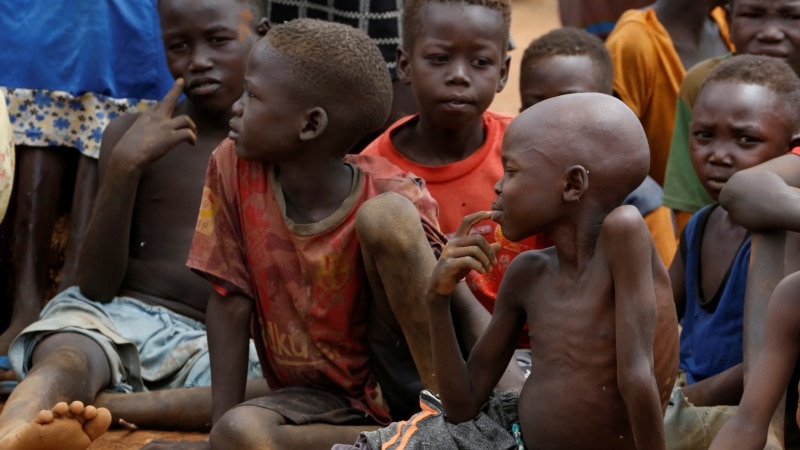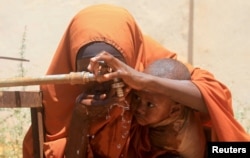This website uses cookies so that we can provide you with the best user experience possible. Cookie information is stored in your browser and performs functions such as recognising you when you return to our website and helping our team to understand which sections of the website you find most interesting and useful.

A new report from the Internal Displacement Monitoring Center says the number of people displaced in Africa has tripled to 35 million. Of these, 32.5 million abandoned their homes due to conflict and violence. The report, published Tuesday, says government efforts to address internal displacement on the continent have been commendable but not enough.
Twenty-four-year-old Amani Kalindi has not known peace since he was a boy growing up in the eastern Democratic Republic of Congo. The truck driver is one of the millions of Africans displaced from their homes due to conflict, disasters, and climate change.
He said people are living in constant fear, fleeing to seek safety, but then hit with new dangers and forced to flee again. War has been a constant problem, with foreign armed groups invading the country to fight over its resources and minerals, he said, adding that inter-communal violence is also a threat.
Kalindi said that, with nowhere else to turn, he arrived in Uganda on Saturday after spending years in Ituri and North and South Kivu provinces in the DRC. Escaping danger, he joined millions of others from Africa and beyond in registering as a refugee.
In a new report published Tuesday, the Geneva-based Internal Displacement Monitoring Center says the large majority of people displaced worldwide are in Africa.
The report looks at the new trends and developments of the displaced from 2009 to 2023 and found that the number of people forced from their homes has tripled to 35 million. Almost 93 percent are displaced due to conflict and violence, and 26 million of them are displaced in just five countries: the Democratic Republic of Congo, Ethiopia, Nigeria, Somalia and Sudan.
Experts say poverty, inequality and marginalization are among the many factors that fuel conflict and violence, and armed groups have exploited these grievances, which create more displacements.
IDMC director Alexandra Bilak said violence is not solely to blame for the crisis.
"So, five countries on the African continent are generating the most conflict-related internal displacement, but our report also shows that disaster displacement is also rising. We are now reporting six times more disaster displacements than 15 years ago," Bilak said.
Floods and droughts trigger the majority of disaster displacements. IDMC researchers warn climate change will make these weather-related events more frequent and intense, and they expect these displacement trends to continue.
With the heightening conflict in Sudan, the chronic armed conflict in the Democratic Republic of Congo, and weather-related disasters hitting communities, Balik said it's hard to see the numbers going down.
"It's hard to be optimistic. We know that with the impact of climate change, the disasters we already see today are likely to increase in the future,” Balik said. “We have seen prolonged periods of drought across the Horn of Africa. And without more investments in the underlying causes of this displacement, we fear that the number will continue rising."
The Internal Displacement and Monitoring Center notes that some African countries have developed national policies to protect and assist internally displaced persons in accordance with a 2009 African Union agreement.
Beyond national legislation and policies, Nigeria issues birth certificates and national identification cards to the displaced, ensuring they are recognized and have access to government services.
Balik said implementing such solutions is necessary for countries to reach their development goals.



 Africana55 Radio
Africana55 Radio 

